
Find Help
More Items From Ergsy search
-

How are disputes between landlords and tenants handled?
Relevance: 100%
-

Landlord Licensing Laws Under Review as Tenants Call for Stronger Protections
Relevance: 73%
-

What can tenants do if they are affected by the cuts?
Relevance: 62%
-

What new protections are included for tenants?
Relevance: 60%
-
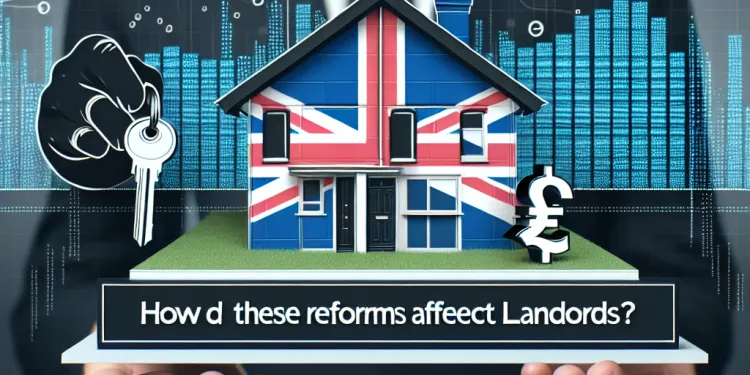
How do these reforms affect landlords?
Relevance: 60%
-
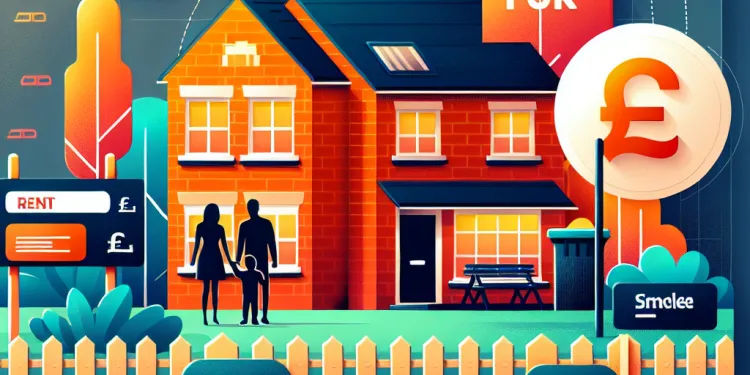
Can a landlord evict me for complaining about property conditions?
Relevance: 57%
-
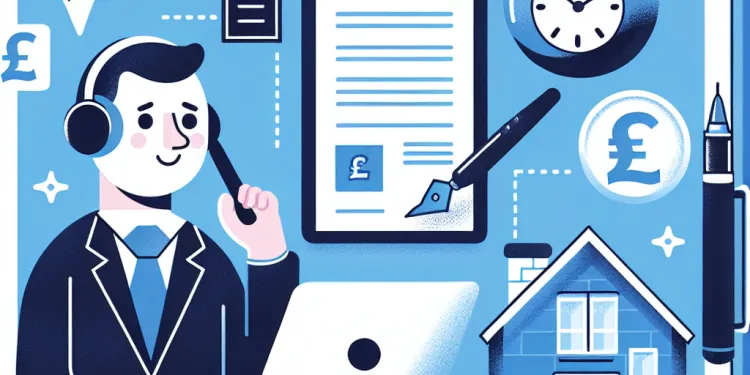
Can I negotiate with my landlord to avoid eviction?
Relevance: 57%
-

How will the cuts impact landlords?
Relevance: 56%
-

Is mediation an option to resolve eviction disputes?
Relevance: 56%
-
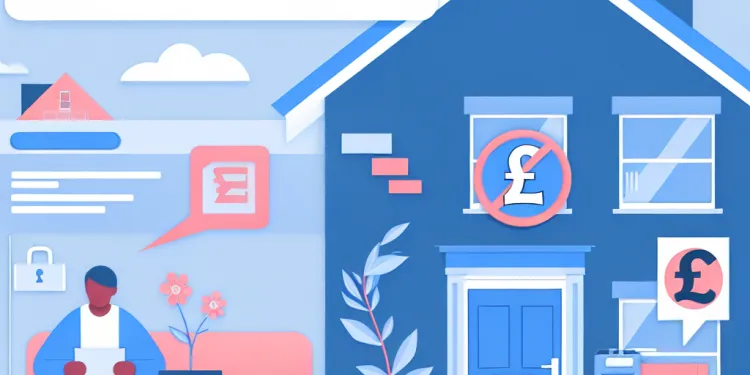
What can I do if my landlord wants to evict me?
Relevance: 55%
-

How can a property litigator assist in lease disputes?
Relevance: 52%
-
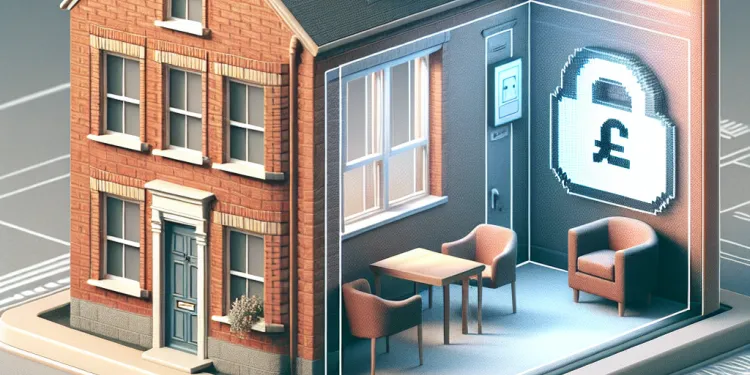
Can a landlord lock me out or remove my belongings to evict me?
Relevance: 52%
-
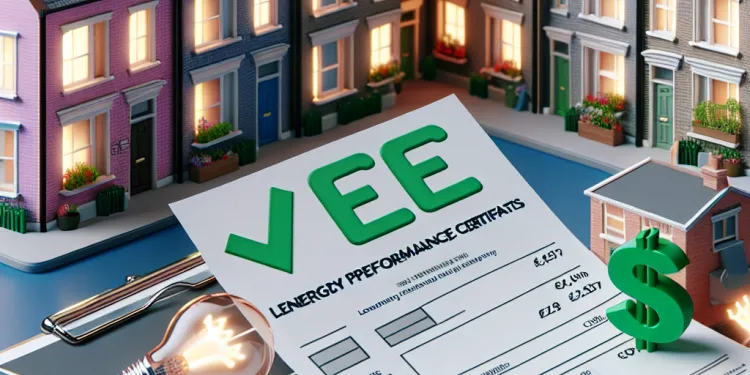
Are landlords required to provide energy performance certificates?
Relevance: 51%
-

What types of disputes are involved in property litigation?
Relevance: 51%
-

How are landlord-tenant issues resolved in property litigation?
Relevance: 50%
-

Can my landlord evict me without providing a reason?
Relevance: 50%
-

Can tenants apply for the Warm Home Discount?
Relevance: 47%
-

What are the new Tenancy Law Reforms in the UK in 2025?
Relevance: 46%
-

How are rent increases regulated under the new law?
Relevance: 45%
-

What should I do if I receive an eviction notice from my landlord?
Relevance: 43%
-

Can property litigation involve commercial real estate?
Relevance: 40%
-

Can I end a lease agreement early?
Relevance: 39%
-

Are there changes to the eviction process?
Relevance: 38%
-

What changes affect pet policies in rented homes?
Relevance: 37%
-

How do the reforms affect housing benefit tenants?
Relevance: 36%
-

Why might someone need a property litigator?
Relevance: 36%
-

How does the reform impact renting costs?
Relevance: 35%
-
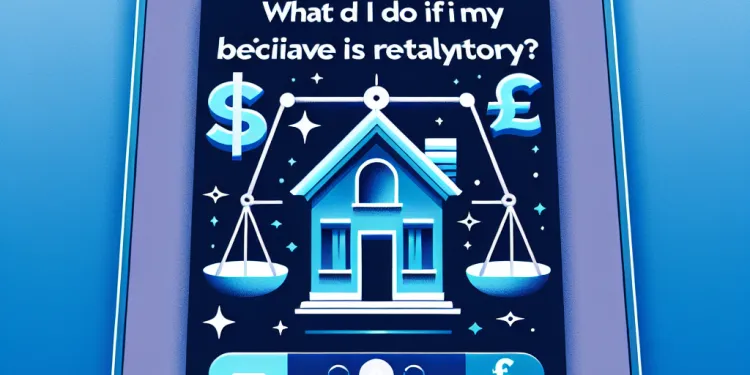
What can I do if I believe my eviction is retaliatory?
Relevance: 35%
-

What are my rights during the eviction process?
Relevance: 35%
-

Watchdog Raises Concerns Over Commercial Landlord Regulations
Relevance: 35%
-

Can property litigation be avoided?
Relevance: 35%
-

Has the notice period for eviction changed?
Relevance: 34%
-

Can I switch energy suppliers if I’m renting?
Relevance: 33%
-

Are there reforms concerning subletting?
Relevance: 33%
-

Shareholder Disputes
Relevance: 32%
-

How can I contest or challenge the eviction?
Relevance: 32%
-

What is property litigation?
Relevance: 32%
-

5 Broker Exclusive Buy to Let Mortgage Lenders you need to know about as a Landlord
Relevance: 32%
-

Can eviction affect my credit score?
Relevance: 31%
-

Company Director Disputes
Relevance: 31%
Introduction to Landlord and Tenant Disputes
In the UK, disputes between landlords and tenants are relatively common due to the complex nature of renting agreements and the varying expectations of both parties. These disputes can arise from various issues such as rent arrears, property maintenance, damages, or disagreements over tenancy terms. Understanding how these disputes are resolved is essential for both landlords and tenants to manage expectations and seek appropriate resolution routes.
Initial Steps for Dispute Resolution
When a dispute arises, the first step is usually to attempt an amicable resolution. Direct communication between the landlord and tenant can often clarify misunderstandings or minor issues. It is recommended that both parties document all interactions and agreements in writing, which can serve as evidence if the dispute escalates.
Mediation and Alternative Dispute Resolution
If direct communication fails, mediation is a recommended next step. Mediation involves a neutral third party who facilitates a conversation between the landlord and tenant to reach a mutually acceptable solution. There are independent organizations, such as the Property Redress Scheme or the Housing Ombudsman Service, that offer mediation services. Utilizing alternative dispute resolution methods is often quicker and more cost-effective than going to court.
Involvement of Local Authorities and Regulatory Bodies
Local councils in the UK can provide assistance, especially in disputes involving housing standards, illegal eviction, or harassment. They have the authority to inspect properties for safety and can mandate repairs if necessary. The Citizens Advice Bureau is another resource where tenants and landlords can seek advice on resolving disputes and understanding their rights and responsibilities.
Taking Legal Action
When disputes remain unresolved through informal or mediated channels, either party may consider legal action. In the UK, most tenancy-related legal actions are handled in county courts. Common legal proceedings include issuing a 'Section 8' or 'Section 21' notice to regain possession of the property or pursuing small claims for unpaid rent or damages.
Court proceedings can be time-consuming and costly, so legal action is typically a last resort. It is crucial for both landlords and tenants to seek legal advice before pursuing court action to ensure they have a valid case and to understand the potential outcomes.
Conclusion
Handling disputes between landlords and tenants in the UK involves several steps, starting with informal resolution attempts and potentially leading to formal legal action. Effective communication and understanding of legal frameworks are key to resolving disputes amicably and efficiently. Both landlords and tenants should be aware of their rights and responsibilities under UK law to prevent and address disputes effectively.
Introduction to Landlord and Tenant Disputes
In the UK, sometimes landlords and people renting their homes (tenants) have disagreements. This can happen because renting rules can be tricky, and landlords and tenants might expect different things. Problems can be about paying rent late, fixing things in the home, damage, or disagreements about the renting agreement. Knowing how to solve these problems is important for both landlords and tenants. It helps them know what to expect and how to solve problems.
Initial Steps for Dispute Resolution
If there is a disagreement, the first thing to do is try to talk it through. The landlord and tenant should talk to each other to clear up any confusion or small problems. It is a good idea for both to write down what they say to each other and any agreements they make. This can help if they need to show someone else later.
Mediation and Alternative Dispute Resolution
If talking doesn't work, the next step is mediation. This means getting a neutral person to help both sides talk and find a solution everyone is happy with. There are groups like the Property Redress Scheme or the Housing Ombudsman Service that can help with this. Mediation is usually faster and cheaper than going to court.
Involvement of Local Authorities and Regulatory Bodies
In the UK, local councils can help, especially if there are problems with safety, illegal eviction, or if someone is being treated unfairly. They can check if a home is safe and tell the landlord to fix things if needed. The Citizens Advice Bureau can also help tenants and landlords understand and solve their problems.
Taking Legal Action
If a problem can't be solved by talking or mediation, the landlord or tenant might think about going to court. In the UK, these cases usually go to county courts. This could include asking to take back the rented property or asking for money for unpaid rent or damages.
Going to court can take a long time and be expensive, so it's usually the last choice. Landlords and tenants should ask a lawyer for advice before going to court to make sure they have a strong case and know what might happen.
Conclusion
In the UK, fixing disagreements between landlords and tenants involves several steps. It starts with trying to fix things informally and may end with going to court. Talking clearly and knowing the law helps to solve problems nicely and quickly. Both landlords and tenants should know their rights and duties according to UK law to stop and fix problems well.
Frequently Asked Questions
What is the first step in resolving a dispute between a landlord and tenant?
The first step is often direct communication between the landlord and tenant to attempt to resolve the issue amicably.
What if direct communication does not resolve the dispute?
If direct communication fails, the next step could be mediation or using a third-party to facilitate a resolution.
What is mediation in the context of landlord-tenant disputes?
Mediation involves a neutral third party who helps the landlord and tenant reach a mutually agreeable solution.
Can disputes be taken to court?
Yes, disputes can be taken to small claims court or a housing tribunal if other methods fail.
What is a small claims court?
A small claims court is a legal venue for resolving minor civil disputes quickly and affordably.
What role does a lawyer play in landlord-tenant disputes?
Lawyers can provide legal advice, represent you in court, and help navigate complex legal issues.
What documentation should be kept in case of a dispute?
Keep all leases, communications, payment records, and any notices or contracts relevant to the dispute.
Are there legal services available for tenants with disputes?
Yes, many cities have tenant advocacy groups or legal aid services to assist tenants in disputes.
How can a landlord enforce a lease agreement?
A landlord can enforce a lease agreement by keeping detailed records, communicating clearly, and seeking legal action if necessary.
What are common reasons for disputes between landlords and tenants?
Common reasons include non-payment of rent, property damage, lease violations, and maintenance issues.
Can a security deposit be a source of dispute?
Yes, disputes often arise over the return of security deposits and deductions made from them.
What are my rights as a tenant in a dispute?
Tenant rights vary by location, but generally include the right to habitable living conditions and protection against unlawful eviction.
What are a landlord's rights in a dispute?
Landlord rights typically include receiving rent on time and maintaining the property according to the lease.
What impact does the lease agreement have on disputes?
The lease agreement serves as the legal contract outlining the rights and responsibilities of both parties, and is central to resolving disputes.
Is arbitration a viable option for resolving disputes?
Yes, arbitration is an alternative dispute resolution method where a neutral third party makes a binding decision.
Can informal negotiation resolve landlord-tenant disputes?
Informal negotiation can be an effective way to resolve disputes without legal intervention if both parties are willing to compromise.
What is a tenant's recourse if a landlord does not make necessary repairs?
Tenants can withhold rent, make repairs and deduct the cost, or take legal action if the landlord fails to make necessary repairs.
Can unresolved disputes affect a tenant's credit score?
Yes, unresolved financial disputes, like unpaid rent, can be reported to credit bureaus and affect a tenant's credit score.
What is a housing tribunal?
A housing tribunal is a specialized court that deals with disputes related to residential properties.
Are there time limits for filing a complaint or dispute?
Yes, there are typically statutes of limitations that set time limits for when various types of claims can be filed.
How do you start to fix a problem between a landlord and a tenant?
The first step is for the landlord and tenant to talk to each other. They should try to solve the problem by being nice and respectful.
What to do if talking does not fix the problem?
If talking to the person doesn't work, try something else. You can ask for help from someone else who can talk to both sides and help find a solution.
What is mediation for problems between landlords and tenants?
Mediation is a way to solve fights or problems. In landlord-tenant problems, it helps landlords and tenants talk and find a solution.
Mediation is like having a helper in the middle. This helper does not take sides. They listen to both the landlord and the tenant. Then, they help them understand each other.
Here are some ways to make mediation easier:
- Use simple and clear words. Avoid big or confusing words.
- Ask for help if you do not understand something. You can ask a friend or use a dictionary.
- Write down your thoughts. This can help you explain what you want to say during mediation.
Mediation is when a person who does not take sides helps the landlord and tenant find a solution that works for both of them.
Can you go to court if there is a problem?
If people cannot agree, they can ask a judge in court to help solve the problem. A judge is someone who makes fair decisions.
Here are some ways to help understand more:
- Ask someone you trust to explain it to you.
- Use pictures or drawings to make things clearer.
- Write down important words and what they mean.
Yes, if you have a problem and nothing else works, you can go to a special court called a small claims court or a housing tribunal.
What is a Small Claims Court?
A small claims court is a special place.
You go there if you have a problem about money.
This court can help you if you want someone to pay you back.
You can use pictures or words to show what happened.
If you need help, you can ask a friend to come with you.
You can also use tools to help you understand better. For example, look at pictures or videos about small claims courts.
A small claims court is a special place where people can solve small problems with each other. It is a quick and cheap way to fix these problems.
What does a lawyer do in problems between landlords and tenants?
A lawyer helps when there are arguments between people who own a house or apartment (landlords) and the people who rent it (tenants).
Here's how a lawyer can help:
- Explain the rules: Lawyers know the laws about renting and can explain them.
- Give advice: They can tell both sides what to do to solve the problem.
- Write letters and papers: Lawyers can help write important documents or letters.
- Go to court: If the problem is big, a lawyer can speak for you in front of a judge.
Support tools:
- Read Aloud App: It can read the text out loud to you.
- Talking Dictionary: This helps understand words you don’t know.
Lawyers are people who know the law. They can give you advice about legal stuff, speak for you in court, and help when the law is complicated.
What papers should you keep if you have a problem?
Keep all papers about the lease, messages, payment slips, and any letters or agreements about the problem.
Can renters get help with legal problems?
If you rent a home and have a problem, you can get help. There are people called legal helpers who can talk to you and help you solve your problem.
You can ask someone you trust to help you find a legal helper. It might help to write down your problem first, so you remember what you want to say.
Using simple words and pictures can make it easier to explain your problem. You can also ask the legal helper to explain things to you in a way that makes sense.
Yes, many cities have groups that help people who rent homes. These groups can give advice or help if you have problems with your landlord.
If you have trouble reading or understanding, you can:
- Ask a friend or family member to help you.
- Use an app that reads text out loud.
- Take your time and read slowly.
How can a landlord make sure a tenant follows a lease agreement?
A landlord is someone who rents out a place. A lease agreement is a set of rules for renting. Here are some ways a landlord can make sure the rules are followed:
- Talk Clearly: The landlord should talk to the tenant. They can remind them of the rules.
- Send Letters: If talking does not work, the landlord can write a letter to remind the tenant.
- Ask for Help: Sometimes, the landlord may need help from a lawyer or a court to solve big problems.
Tools to Help:
- Checklists: Use a list to remember all the rules in the lease.
- Calendar: Mark important dates, like when rent is due.
A landlord can make sure a lease agreement is followed by doing a few things. First, they should write down everything. This means keeping good records. Next, they should talk clearly to the tenant. If things still don't work, they might need to ask a lawyer for help.
Why do landlords and tenants argue?
Here are some common reasons:
- Rent: Sometimes tenants don't pay rent on time, or landlords want more money.
- Repairs: A tenant might want something fixed, but the landlord doesn't do it.
- Privacy: A landlord might visit too often without telling the tenant.
- End of Lease: There can be problems when the tenant moves out, like cleaning or damage.
If you have trouble reading, try using tools like text-to-speech apps. They can read the text out loud for you.
Here are some common reasons:
- Not paying rent.
- Breaking things in the home.
- Not following rules in the lease.
- Problems with fixing things.
If you have trouble reading, you can use tools that read the text out loud or make the text bigger.
Can people argue about a security deposit?
A security deposit is money you give when you rent a home.
Sometimes, people argue about this money.
Here are some reasons why:
- The landlord says you broke something.
- You think you should get all your money back.
- You and the landlord remember things differently.
To help, you can:
- Take pictures of the home when you move in.
- Keep all your rental papers and letters.
- Ask someone you trust to help talk it through.
Yes, people often have arguments about getting their deposit money back and any money taken out of it.
What can I do if I have a problem where I live?
If you have a problem where you live, you have some things you can do. Here are some ideas to help you:
- Talk to your landlord. Tell them about the problem.
- Write down what is happening. Keep notes of what you say and what they say.
- Ask someone you trust to help you, like a friend or family member.
- You can also talk to a special helper, like a tenant advice service.
A renter's rules change depending on where you live. But usually, they have the right to live in a safe home. Renters also have rules to stop unfair kicking out.
What can a landlord do in an argument?
If someone rents a property to live in, they call the person who owns it a "landlord." Sometimes, a landlord and the person living in the house might not agree. These disagreements are called "arguments" or "disputes."
Here are some things landlords can do when they have an argument with someone living in their property:
- Talk and try to solve the problem together.
- Check the agreement they both signed. This paper says what each person should do.
- Ask for help from special groups or people who know a lot about this kind of argument.
- Go to a special meeting with someone who can help them agree. This is called "mediation."
- If nothing else works, they might go to court to let a judge decide. This is a big decision, so they try other things first.
Some tools that can help:
- Pictures or drawings to show what's happening.
- Having someone they trust explain things in a simple way.
- Using a voice recorder to remember what was said.
Landlords have rights. They can expect rent to be paid on time. They also need to keep the property in good shape as agreed in the lease.
How does the lease agreement help if there is a problem?
The lease is a written promise between two people. It can help when there is a problem.
Use these tips to understand better:
- Break the lease into small parts.
- Ask someone if you do not understand.
- Look up hard words in a simple dictionary.
The lease agreement is a paper that shows what each person can and cannot do. It helps solve problems between people who rent and people who own a place.
Is arbitration a good way to solve arguments?
Yes, arbitration is another way to solve problems. Here, a fair person who is not on anyone's side listens and makes a decision. Everyone must follow this decision.
Can talking solve problems between landlords and tenants?
Can talking help fix problems between people who own places (landlords) and people who rent them (tenants)?
If you have a problem with your landlord or tenant, try talking first. This can sometimes solve the problem.
Here are some tips to help you talk:
- Stay calm and be polite.
- Explain your problem clearly.
- Listen to the other person’s side.
- Try to find a solution that works for both of you.
If talking doesn’t help, you might need to ask for help from someone else.
Talking things over without going to court can work well if everyone is ready to give and take a little.
What can a tenant do if the landlord does not fix things?
If something is broken in your home, and the landlord doesn't fix it, you can do some things.
You can stop paying rent until it is fixed. You can also fix it yourself and take the cost out of the rent. Another choice is to talk to someone who can help, like a lawyer.
Can fights about problems hurt a tenant's credit score?
If you do not pay your rent, it can be a problem. The landlord might tell credit bureaus. This can make your credit score go down.
What is a housing tribunal?
A housing tribunal is a special place that helps solve problems between landlords and people who rent homes. It’s like a meeting where everyone talks about their problems and finds a solution.
If you have a problem with your landlord, you can go to the housing tribunal to get help. They listen to both sides and decide what is fair.
Here are some tips to help you understand:
- Ask someone you trust to explain things if you don’t understand.
- Use pictures or drawings to help you see what’s happening.
- Take notes or record important information to remember later.
A housing tribunal is a special kind of court. It helps solve problems people have with their homes or apartments.
Is there a deadline to make a complaint or disagreement?
Yes, there are usually rules about how much time you have to make a complaint or claim.
Useful Links
This website offers general information and is not a substitute for professional advice.
Always seek guidance from qualified professionals.
If you have any medical concerns or need urgent help, contact a healthcare professional or emergency services immediately.
Some of this content was generated with AI assistance. We’ve done our best to keep it accurate, helpful, and human-friendly.
- Ergsy carfully checks the information in the videos we provide here.
- Videos shown by Youtube after a video has completed, have NOT been reviewed by ERGSY.
- To view, click the arrow in centre of video.
- Most of the videos you find here will have subtitles and/or closed captions available.
- You may need to turn these on, and choose your preferred language.
- Go to the video you'd like to watch.
- If closed captions (CC) are available, settings will be visible on the bottom right of the video player.
- To turn on Captions, click settings .
- To turn off Captions, click settings again.
More Items From Ergsy search
-

How are disputes between landlords and tenants handled?
Relevance: 100%
-

Landlord Licensing Laws Under Review as Tenants Call for Stronger Protections
Relevance: 73%
-

What can tenants do if they are affected by the cuts?
Relevance: 62%
-

What new protections are included for tenants?
Relevance: 60%
-

How do these reforms affect landlords?
Relevance: 60%
-

Can a landlord evict me for complaining about property conditions?
Relevance: 57%
-

Can I negotiate with my landlord to avoid eviction?
Relevance: 57%
-

How will the cuts impact landlords?
Relevance: 56%
-

Is mediation an option to resolve eviction disputes?
Relevance: 56%
-

What can I do if my landlord wants to evict me?
Relevance: 55%
-

How can a property litigator assist in lease disputes?
Relevance: 52%
-

Can a landlord lock me out or remove my belongings to evict me?
Relevance: 52%
-

Are landlords required to provide energy performance certificates?
Relevance: 51%
-

What types of disputes are involved in property litigation?
Relevance: 51%
-

How are landlord-tenant issues resolved in property litigation?
Relevance: 50%
-

Can my landlord evict me without providing a reason?
Relevance: 50%
-

Can tenants apply for the Warm Home Discount?
Relevance: 47%
-

What are the new Tenancy Law Reforms in the UK in 2025?
Relevance: 46%
-

How are rent increases regulated under the new law?
Relevance: 45%
-

What should I do if I receive an eviction notice from my landlord?
Relevance: 43%
-

Can property litigation involve commercial real estate?
Relevance: 40%
-

Can I end a lease agreement early?
Relevance: 39%
-

Are there changes to the eviction process?
Relevance: 38%
-

What changes affect pet policies in rented homes?
Relevance: 37%
-

How do the reforms affect housing benefit tenants?
Relevance: 36%
-

Why might someone need a property litigator?
Relevance: 36%
-

How does the reform impact renting costs?
Relevance: 35%
-

What can I do if I believe my eviction is retaliatory?
Relevance: 35%
-

What are my rights during the eviction process?
Relevance: 35%
-

Watchdog Raises Concerns Over Commercial Landlord Regulations
Relevance: 35%
-

Can property litigation be avoided?
Relevance: 35%
-

Has the notice period for eviction changed?
Relevance: 34%
-

Can I switch energy suppliers if I’m renting?
Relevance: 33%
-

Are there reforms concerning subletting?
Relevance: 33%
-

Shareholder Disputes
Relevance: 32%
-

How can I contest or challenge the eviction?
Relevance: 32%
-

What is property litigation?
Relevance: 32%
-

5 Broker Exclusive Buy to Let Mortgage Lenders you need to know about as a Landlord
Relevance: 32%
-

Can eviction affect my credit score?
Relevance: 31%
-

Company Director Disputes
Relevance: 31%


